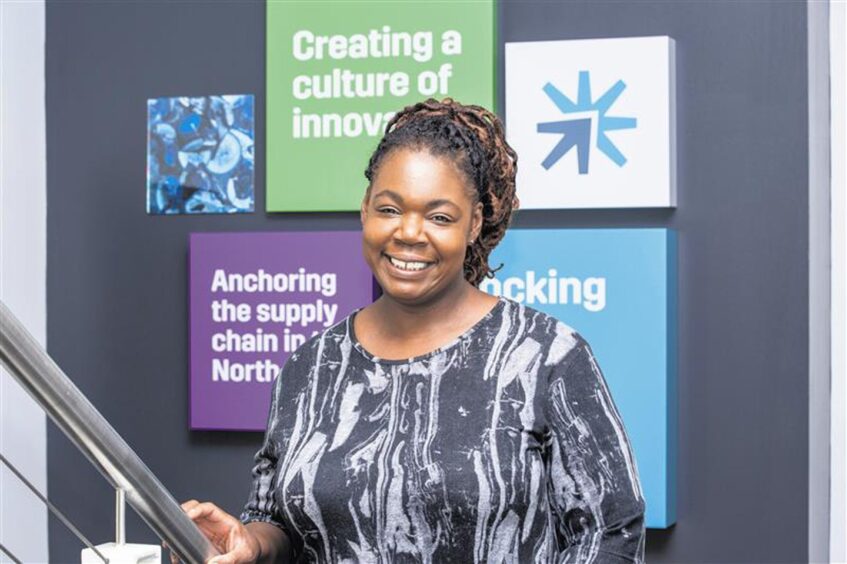
Technology innovation and digital transformation are fundamental to the UAE’s ambitious energy transition. Myrtle Dawes CEO of the Net Zero Technology Centre (NZTC), touches on how the UAE can become one of the nations to lead the charge towards a sustainable future.
“The UAE’s Net Zero by 2050 Strategic Initiative is a bold vision,” says Dawes. “It outlines a comprehensive plan, focusing on various sectors, including energy, transportation, and industry, to reduce carbon emissions and promote sustainable practices.
“To achieve this, cost-effective, emerging and ready-to-deploy solutions such as alternative fuels, electrification, CCUS, and hydrogen must be adopted and scaled. The foundation of this is emissions reduction from onshore and offshore operations. This includes eliminating leaks, flaring, and venting, employing low-emission logistics strategies, and reusing and repurposing infrastructure.”
The UAE is making significant strides in hydrogen and carbon capture, utilisation, and storage (CCUS) technologies through major investments, innovative projects and strategic partnerships. With a $15 billion commitment from ADNOC to low-carbon solutions, including hydrogen and CCUS, the UAE is developing pioneering projects like the region’s first large-scale carbon capture initiative and new carbon removal technologies.
To support the region’s endeavour, NZTC has established a permanent foothold in the UAE, recently announcing an exclusive partnership agreement with Emirati-owned Euro Mechanical.
The collaboration will leverage the combined expertise of NZTC and Euro Mechanical to support asset operators and owners in their journey towards decarbonisation and the adoption of innovative energy solutions.
Dawes explains: “NZTC is at the forefront of technology development and deployment having screened thousands of technologies and supported hundreds of field trials. This puts us in a unique position to provide technology-focused insight and foresight to clients in the UAE who are trying to navigate the complexities of decarbonisation.
“Euro Mechanical is the obvious partner of choice for NZTC due to their significant reputation and footprint in the UAE, with a strong commitment to innovation and sustainable energy solutions across a range of industries.”
Selecting the right technology
Emerging technologies play a significant role in emissions reduction. “It is estimated that 40 percent of emissions reduction will come from technologies still in R&D or not yet mature,” Dawes highlights.
“These technologies can look good on paper, but understanding if they stand up in practice is key. Our Technology Due Diligence service provides investors with insights to make informed decisions. We assess the legitimacy, readiness, scalability, and investability of new technologies .”
“Asset owners and operators come to us overwhelmed by the constantly evolving technology landscape. Our Technology Roadmapping service is helping oil and gas clients in the UAE determine how zero-emissions power, zero routine flaring, venting, and fugitive emissions technologies can be adopted and deployed across their assets to achieve decarbonisation goals. Recently, this service identified a 74 percent emissions reduction potential across the Greater Markham Area (GMA) hub for Spirit Energy.”
Digital driving decarbonisation
Information and integrated data provides a mountain of insight, much of which goes untapped.
“Leveraging advanced data analytics and digital tools, the sector can optimise operations, enhance efficiency, and lower costs. Digital transformation not only enhances operational efficiency and boosts productivity but also supports the UAE’s vision of becoming a global leader in artificial intelligence (AI).
“AI boosts clean energy production and reduces carbon emissions by accurately mapping renewable resources, improving energy storage solutions, and managing energy grids more efficiently. AI-driven technologies are crucial for the UAE’s sustainability initiatives, aiding in the digital transformation and decarbonisation of the energy industry.”
People powering progress
As thousands of workers transition from oil and gas, and tens of thousands of new jobs are created globally, Dawes highlights the importance of the people and expertise that will propel us forward.
“When we discuss new technology, digitisation and data utilisation, it’s easy to overlook the human element. However, at the core of any successful transformation and energy transition whether it be in the UK, USA, or the UAE, are the people driving these changes.
“The true value of technological advancements lies in their ability to complement human intelligence. By integrating the creativity and expertise of individuals with the precision and efficiency of advanced technologies, the UAE can achieve significant progress in its clean energy initiatives. This synergy ensures that the energy transition is both sustainable and inclusive.”
Recommended for you
